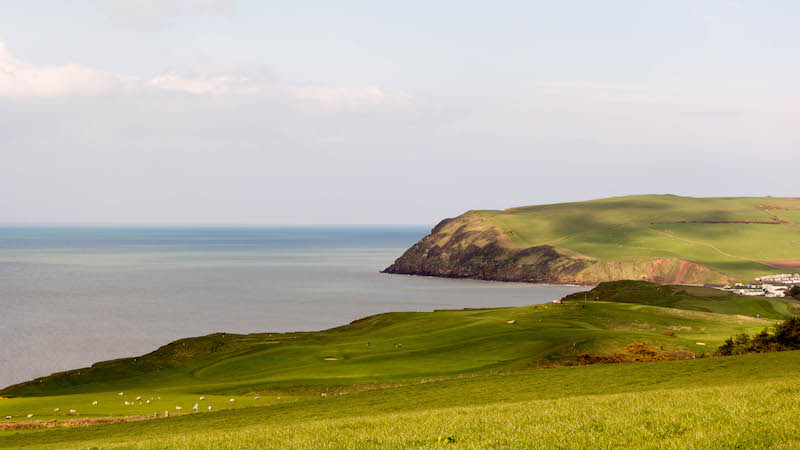Plans to build the UK’s first deep coal mine in 30 years have been suspended after the UK government was accused of “rank hypocrisy” for greenlighting the project while seeking to lead on climate action.
Last month, the government was criticised by environmental campaigners and lawmakers for not blocking the construction of a new coal mine in Cumbria, northwest England. They said that the coal project weakened the UK’s leadership credentials ahead of hosting the Cop26 climate summit in November.
The £165 million West Cumbria Mining project is to extract coking coal from below the Irish Sea for steel production, which will emit an estimated 8.4 million tonnes of carbon dioxide equivalent a year when burned.
In response to mounting criticism, the ministry of housing, communities and local government said in a statement that the planning application should be determined by the local council.
Cumbria county council said this week that it would reconsider permission in light of “new evidence”, citing guidance from the Committee on Climate Change (CCC) published in December that recommends that the use of coking coal should be curbed by 2035 if the UK is to meet its 2050 net-zero target.
West Cumbria Mining said in its application that the mine would be closed by the end of 2049.
Cop26 dream team: The people setting the climate agenda on seven key issues
Last month the CCC wrote a letter to minister of housing and communities Robert Jenrick urging the government to reconsider all new coal developments.
“The opening of a new deep coking coal mine in Cumbria will increase global emissions and have an appreciable impact on the UK’s legally binding carbon budgets,” Lord Deben, head of the CCC, wrote.
“It is also important to note that this decision gives a negative impression of the UK’s climate priorities in the year of COP26,” he added.
In the letter, the CCC offered to help frame guidance for local councillors and planners who are involved in making decisions with climate implications.
The Cumbria Council decision to backtrack on a new coal mine has nothing to do with ‘new information’ and everything to do with the power of people getting organised
— Ellen Gibson (@ellenrgibson) February 9, 2021
Rebecca Willis, professor in practice at Lancaster University, told Climate Home News the review did not necessarily mean the council would cancel the project.
Councillors had seen “plenty of independent expert evidence” on the climate impacts before approving the mine, she said. But the CCC advice was harder to ignore and doing so could lay them open to legal challenge.
The local authority is under “huge political pressure” and “trying to look for a face-saving way out,” she said.
“It’s a really bad look for a government who claims to be a climate leader and who is hosting the most important climate summit ever to be telling other governments what to do and then supporting a coal mine in its own backyard. At best that’s confusing and at worst it’s hypocritical.”
In a letter sent to Jenrick in October, 13 independent climate experts argued that a 2049 end date was “wholly inappropriate” and would “hinder the ability of UK industry, particularly the steel industry, to innovate and decarbonise.”
Fatal Himalayan glacial lake outburst highlights destabilising effect of warming
Unbelievably excellent news!! The power of climate change political commitments to actually prevent new high carbon major infrastructure projects from going ahead may at last be reaching the levels needed (ref Heathrow). 💪🤩🌍
Next up, the £27bn road building programme https://t.co/U5DUpHq4CA
— Leo Murray @[email protected] (@crisortunity) February 9, 2021
Swedish climate activist Greta Thunberg questioned the UK’s net zero commitment after the government refused to intervene last month.
“This really shows the true meaning of so called ‘net zero 2050.’ These vague, insufficient targets long into the future basically mean nothing today,” she said.
Jill Perry, chair of a local green party in Cumbria, welcomed the council’s decision to review the application.
“If the mine goes ahead it risks not just blowing the government’s sixth carbon budget out of the water but also Cumbria’s net zero goal,” she told Climate Home News, adding that besides increasing emissions, the mine posed a serious risk to local woodland and wildlife.
Indian farmers head for showdown with government over agricultural reform
West Cumbria Mining has said that the mine will create 500 jobs in a region struggling with high unemployment.
“There’s no doubt that the area needs jobs, but jobs in clean industries would provide a much more certain future for the area,” said Perry.
Labour lawmaker and former energy minister Ed Miliband also welcomed the council’s announcement this week.
“The government now has a second chance to do the right thing and call it in. The UK cannot claim to be a climate leader whilst opening a new coal mine and ministers must realise that by doing so they undermine our credibility both at home and abroad,” he said in a statement.
